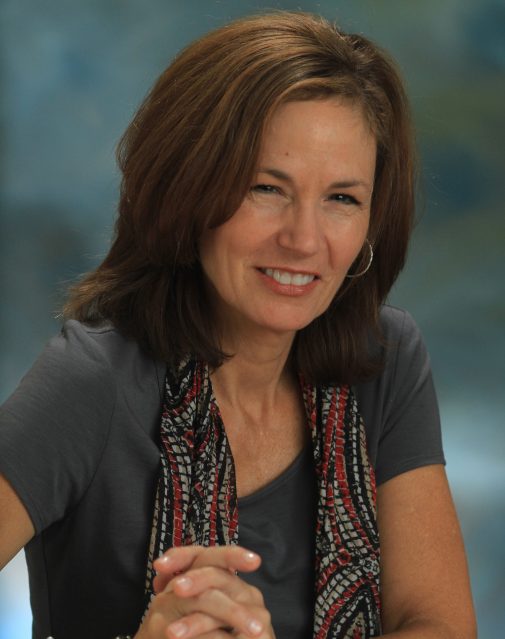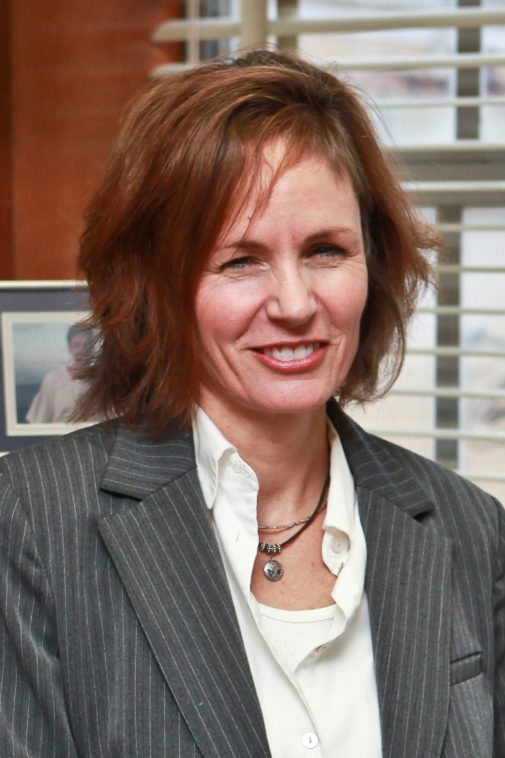Richter to Fill Chair in Biblical Studies
By
Westmont

Sandra Richter, who has taught Old Testament at Asbury Theological, Wesley Biblical and Gordon-Conwell Theological Seminaries as well as Gordon and Wheaton Colleges, is the new Robert H. Gundry professor in biblical studies at Westmont.
Her research focuses on Deuteronomy, Isaiah, archeology and the Bible, and American environmental practice, and she wrote the widely praised book “The Epic of Eden,” which offers readers a lucid introduction to the Old Testament.
“I’ve come to a place in my career where getting the material I’ve been teaching and researching into print and published is at the absolute top of my to-do list,” she says, “and the Robert H. Gundry Chair is designed to facilitate just that objective. I’ve spent my career with one foot in the guild and one foot in the church, leading student groups on archaeological excavations, speaking on the road to both faith-based and technical audiences, filming curriculums for laity, and writing commentaries for academicians. This particular post embraces all of that. I am stepping into a position designed, exactly, to embrace these ambitions. And I can’t think of anything more exciting than taking that leap that lands me in the place where I can best fulfill my calling with a community around me which enthusiastically supports me in that task.”
Richter graduated from Valley Forge Christian College, earned a Master of Arts at Gordon-Conwell Theological Seminary and a doctorate in Near Eastern languages and civilizations and Hebrew Bible at Harvard University.
“I am excited about the scope of intellectual interests that Sandy will bring to the post, and I admire her ability to engage both the academy and the church,” says Mark Sargent, provost at Westmont. “For eight years she served as a minister with the Assemblies of God and remains an adviser to the Translation and Scholarship Committee of the American Bible Society.”
Richter says her interest in teaching Old Testament emerges from her passion for the great story as a whole. “We are living within an epic tale of a divine father who is willing to pay any price to win back his prodigal children,” she says. “A patriarch who has sent his own heir as the ransom for our lives. A king who will fight any war to win our freedom. A God whose one ambition is to spend eternity with us. My great grief as an academic and as a Christian is that most people attempt to know and tell this story without any real grip on the first two-thirds of the tale. As academics and as laity we treat the New Covenant as though it stands in isolation. As though the characters are first introduced in Matthew 1. As though the ambition to ‘seek and save the lost’ begins with a birth in Bethlehem. When in reality this story begins in Eden, when the first Adam made the world-altering decision to walk away from paradise. Everything that stands between Genesis 3 and Revelation 21 is one continuous epic of redemption, a complex and many-faceted rescue plan. It comes to us in real time and space, real people who were embedded in real cultures and economies, and value systems that stand far and away from our own. Unless we’re able to step back into that real time and space, come to know these characters in their native contexts, we will never fully understand our own story.
“My ambition as a professor at every level (laity, undergraduate, graduate, and beyond) is to bring these characters to life by understanding their world.”
That’s why her research runs the gamut from the economies of the Iron Age I, II and III; agriculture and animal husbandry in the Levant; military methods in the Ancient Near East; family systems in tribal communities; and the literary expertise of the biblical writers.
“My ambition is to bring every tool in my wheel house to bear on the text: linguistics, archaeology, biblical theology, narrative, source and redactional criticism,” she says. “Then I’m able to reproduce this story in real space and time as it was intended by its original authors so that it can be understood and transform the faith and behavior of the believer today.”
Richter looks forward to meeting Bob Gundry, whose name is attached to the endowed chair. “Gundry has a reputation as a groundbreaking academic as well as a voice of challenge to the evangelical academic community and the church,” she says. “I was trained via his ‘Survey of the New Testament’ in my graduate education, graduated from the same doctoral program and dug at Tel Zayit (the Zeitah Excavations) with his son-in-law, Ron Tappy.
“In coming to a new school there is always the excitement of meeting new people, the faculty, staff and students, who call Westmont home. And we have received such a warm welcome from Westmont at every level that this alone has got my entire family anticipating this transition with a sense of joy and expectation.”
Filed under
Academics, Admissions, Campus News, Faculty and Staff, Giving, Press Releases